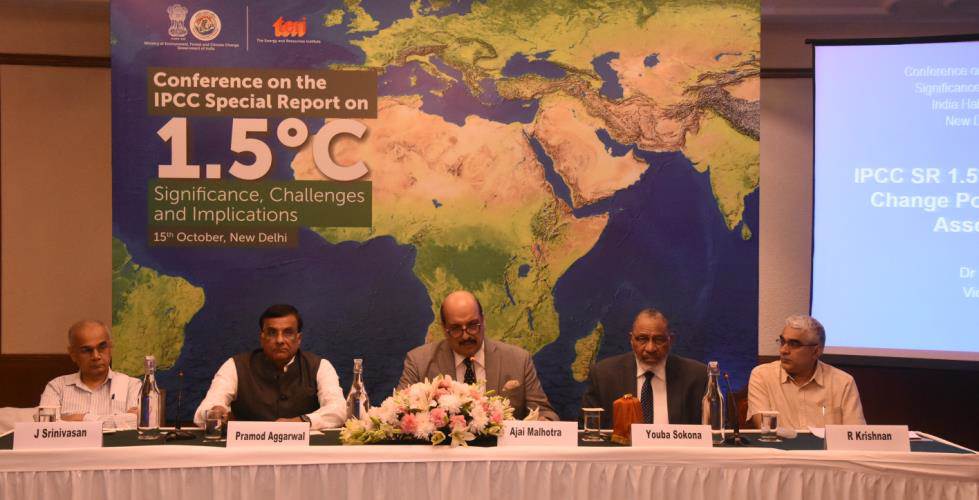 15
October 2018 : Dr R.Krishnan honored as a panellist in the TERI-MoEF&CC Conference on IPCC SR1.5
15
October 2018 : Dr R.Krishnan honored as a panellist in the TERI-MoEF&CC Conference on IPCC SR1.5
Dr R. Krishnan, Executive Director, CCCR-IITM was invited as a panellist in the TERI and the MOEFCC co-hosted Conference on the Intergovernmental Panel on Climate Change (IPCC) released the Special Report on the "Impacts of global warming of 1.5 °C above pre-industrial levels and related global greenhouse gas emission pathways, in the context of strengthening the global response to the threat of climate change, sustainable development, and efforts to eradicate poverty" (SR1.5) at New Delhi on the 15th October 2018.
In the Panel discussions on the key findings of the SR1.5 on impacts at 1.5°C of global warming, Dr. Krishnan talked about the reliability of heatwave projections on a global scale, and the limitations of these at the regional scale, given that heatwaves are modulated by internal climate variability including El Niņo effects. Similarly, assessments of regional water cycle and precipitation changes must be tempered because those variations are not spatially and temporally uniform as in the case of temperature changes, and are subject to natural forcings, increasing anthropogenic aerosols, land use and land cover changes, El Niņo effects etc. With regard to sea level rise, models project sea level rise to increase as a function of temperature rise, but regional sea level variations show multi-decadal variations which are related to changes in the monsoon circulation. His remarks were an illustration of global model biases at regional scales.
This Conference was co-hosted by TERI and MoEFCC considering the significance of the IPCC SR1.5 and its implications for international and national strategies for addressing climate change. This was part of an effort to hold informed discussions on the implications of the SR1.5 for India, with the involvement of stakeholders from government, scientific & research institutions, think tanks, and from the industry including buildings, transport, and power sectors in India.
More details are available in the proceedings of the TERI & MoEFCC co-hosted Conference Click Here
Conference Link : Click Here
-
Next Previous



